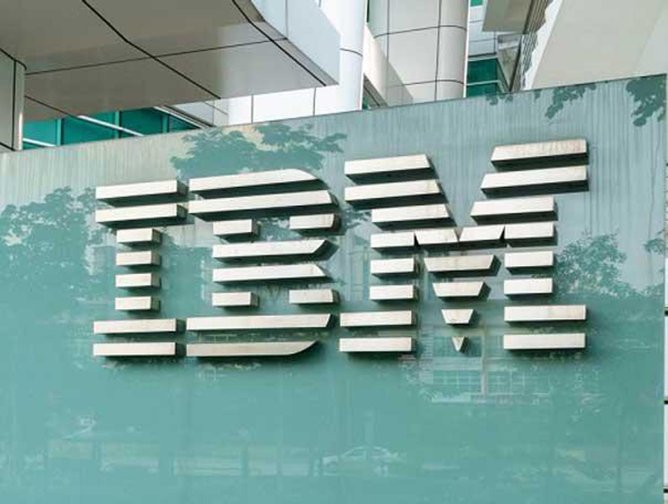‘Client Zero’ IBM’s Guide to Using AI for Sustainability

IBM has revealed a host of ways it believes AI and data can be used to “supercharge” businesses’ sustainability efforts.
In a detailed post on its website, the technology giant leaves no doubt about the way it sees the industry going – and AI is in the vanguard.
The blog is authored by Oday Abbosh, Global Sustainability Services Leader, IBM Consulting, and Christina Shim, VP, Product Management, IBM Sustainability.
They say: “With 2024 on track to be the hottest year on record, data and AI can be applied to many areas to help supercharge sustainability efforts.
“We believe there are three core areas that every organisation should focus on: sustainability strategy and reporting; energy transition and climate resilience; and intelligent asset, facility and infrastructure management.”
Sustainability strategy, data and reporting
The blog stresses that reporting requirements can be met while using AI and data to drive sustainability strategies.
Oday and Christina say: “CEOs say that sustainability investments will help drive better business results in the next five years. However, some organisations struggle to progress at their desired rate despite having strong commitment and acting accordingly.
“One of the key challenges they face is the lack of reliable data and insights, according to an IBM survey of business leaders.”
The answer, they argue, lies in utilising AI.
“AI technology can help overcome this challenge by turning intel into insights faster, enabling businesses to drive toward sustainability goals and financial targets more quickly.
“Using AI, business teams can clean data, manage through gaps and report across different frameworks.”
They say it can help organisations to more easily establish a sustainability strategy across the business and it “allows them to leverage data and insights to supercharge their progress in a way that improves performance and meets regulatory requirements”.

Client Zero
IBM says it sometimes acts as ‘client zero’ for its own solutions.
For example:
- IBM Global Real Estate uses IBM technology to track, analyse and report progress toward sustainability goals
- IBM also uses IBM Envizi to collect data from 6,500+ utility bills it receives globally each year and summarises total energy consumption, cost and renewable electricity purchases across the business to save many hours of calculations.
Oday and Christina say: “With this technology, we can pull reports and filter by location, geography and utility, among others, to understand where energy consumption is highest, identify any unexpected changes and find out where IBM has the most opportunity to drive energy conservation.”

Applying AI for energy transition and climate resilience
IBM is applying AI, Internet of Things (IoT), advanced data and automation solutions to empower this transition.
For example, supermarket chain Salling Group uses IBM Consulting’s Flex Platform to balance its electricity consumption in relation to the supply of renewable power sources in the grid.
The platform, created in partnership with Andel Energi in Denmark, uses IoT sensors, AI and the cloud to “provide an energy ecosystem for consumers to participate in real-time, intelligent grid optimisation”.
Oday and Christina say: “This enables large buildings, such as grocery stores, to partially pause their energy use up to a threshold where there is no material impact to their operations, based on electricity available via renewable electricity production – and to be paid for this flexibility.”
IBM is also using AI to help organisations to predict climate impact.
It is working on a geospatial foundation model which can be fine-tuned to track deforestation, detect GHGs or predict crop yields.
Oday and Christina say: “Foundation models help identify and analyse data, surface trends such as where and why populations are moving, provide insight on how to serve them with renewable energy and also estimate where carbon is stored, how long it will take to degrade and more.”
Making AI itself sustainable
There is an understanding that, while AI can be used to reduce carbon consumption, it is also a potentially great devourer of the same.
It requires vast amounts of energy and data.
IBM has taken steps towards mitigating this: for example, In 2023, 70.6% of its total electricity consumption came from renewable sources, including 74% of the electricity consumed in IBM data centres.
Intelligent asset, facility and infrastructure management
Another big challenge is how to leverage AI to build efficient physical operations, manage costs and reduce the environmental footprint.
The blog cites Atlanta, Georgia, which uses IBM Maximo to maintain 51 of its facilities, including all city-owned buildings.
It says: “This solution provides a single, integrated platform with access to comprehensive monitoring, maintenance and reliability applications across city departments which can use this platform to plan and schedule maintenance, track work orders and manage maintenance, all within a single platform.”
Oday and Christina add: “We are seeing an industry shift from enterprise asset management (EAM) toward asset life cycle management (ALM) due to the rise of AI and new sustainability regulations.
“ALM allows us to extend an asset’s overall lifespan, increasing its efficiency in ways we couldn’t before.”
******
Make sure you check out the latest edition of Sustainability Magazine and also sign up to our global conference series - Sustainability LIVE 2024
******
Sustainability Magazine is a BizClik brand
******






